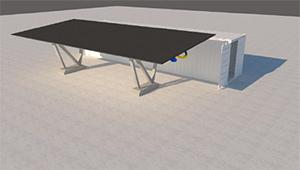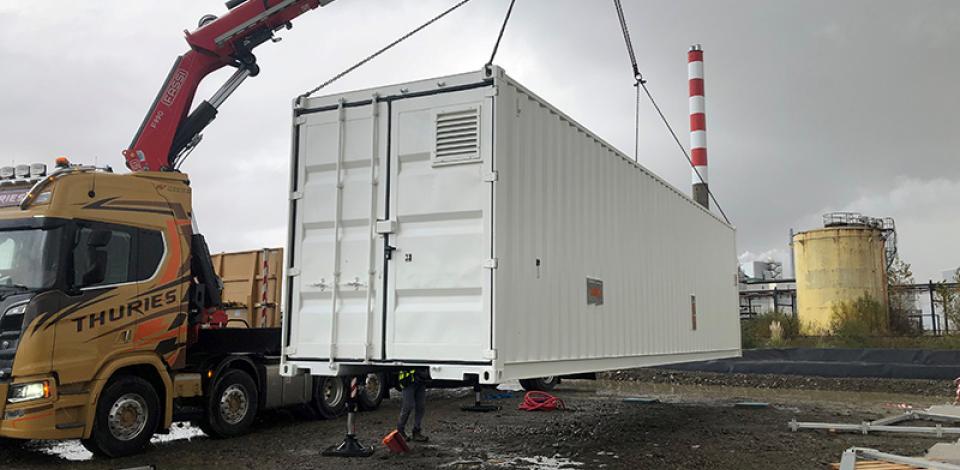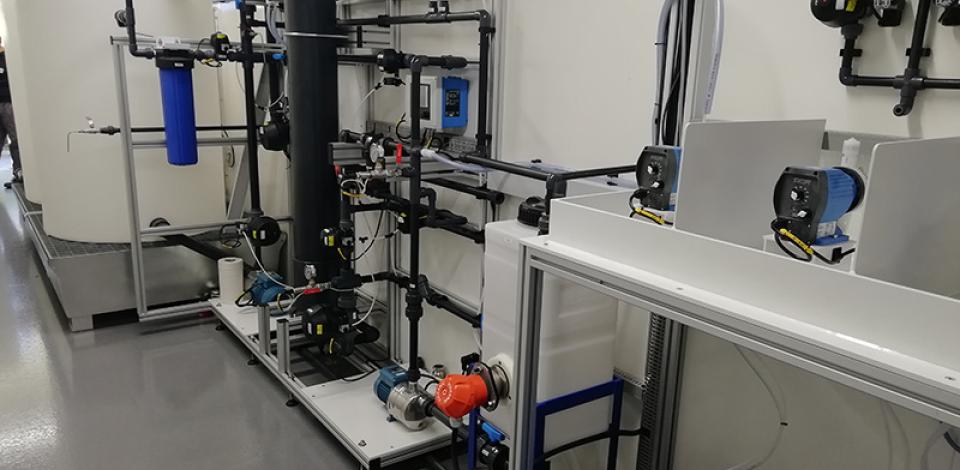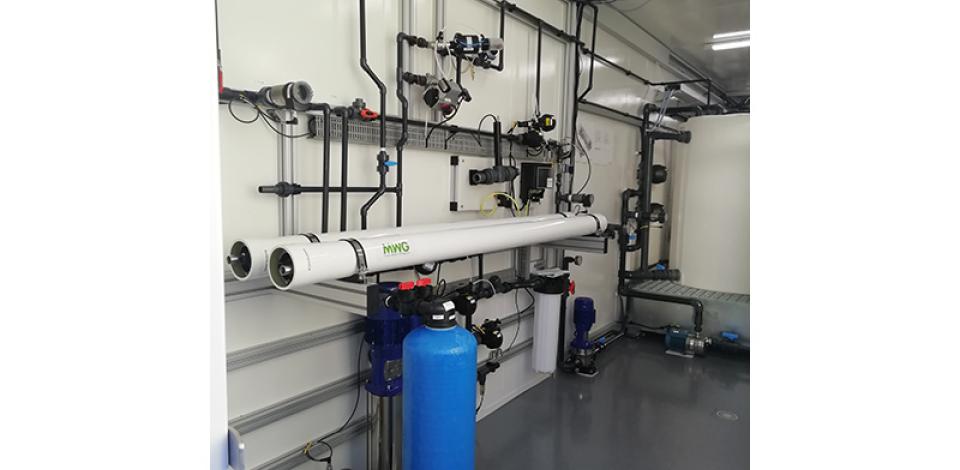11/01/2022 News
A TotalEnergies demonstrator for the integrated and sustainable management of water resources
All the stakeholders agree that climate change has significant impacts on water resources: disruption of the water cycle, flooding, drought, melting snow and ice, rise in sea level, decrease in available quality water supplies, etc. According to scientific forecasts, the impacts on water resources and in particular the availability of fresh water, will grow over the next few years, and these changes are triggering counter-measures all over the world. Cities and regions are already adapting by adopting more sustainable solutions, that involve using freshwater more sparingly and more intelligently to ensure fairer access to water resources. Regulations are also becoming more and more stringent as regards discharge into the environment, and also water extraction with drought laws that are imposed by public authorities to limit freshwater extraction (-10% to -20%).
The SWAP (Sustainable Water Platform) project is a response to this context, and its aim is to valorize all the available water resources on or near TotalEnergies sites, while limiting their impact on the environment. It’s a vital challenge for our broad energy Company.
SWAP is a shared initiative kicked off by the researchers on the SESD (Safety - Environment - Sustainable Development) program, the Sustainable Development Environment service at the PERL (Platform for Experimental Research in Lacq) and the R&D team for the Hybrids and Storage program in the GRP (Gas, Renewables & Power) branch, and is expanding fast in our Company (solar power, wind energy, etc.). This initiative was able to progress with the support of the teams from the PERL to help in engineering studies, the interface with difficult stakeholders and the teams from the PPL (Pilot Platforms at Lacq) to integrate the SWAP pilot into a SEVESO environment.
Bringing this pilot into being is real multidisciplinary teamwork.
What does SWAP involve? Setting up an integrated demonstration platform for water
treatment, which is fully autonomous in energy!
The strategy is to:
- Take advantage of all the available resources that are not currently used on or nearby the site: rainwater and storm water runoff, treated wastewater, or water used for washing solar panels, etc.
- Build an autonomous compact, efficient and easily deployable demonstrator to test different water use scenarios,
- Capitalize on this platform to test different key components of GRP, such as solar panels, batteries and possibly electrolyzers to produce green hydrogen, etc.
- Test a hybrid system that supplies the energy required for water treatment purposes.
- Test the different operating procedures, acquire data, analyze and validate production forecast or monitoring models.
- Propose optimization strategies for autonomous water treatment platforms powered by renewable energies.
- Evaluate the water and carbon footprint of our scenarios through lifecycle analysis (LCA) studies.

To begin with, rainwater and treated wastewater will be reused after treatment through a containerized pilot. The facilities include several physical water treatment processes: ultrafiltration, nanofiltration, ion-exchange resin in series.
In addition, hybrid solar panels connected to inverters and fitted with an Energy Management System (EMS) will ensure that the pilot is autonomous in terms of its electricity supply, without any direct CO2 emissions. At a later stage, other treatment technologies and renewable energy sources will be tested.
A project with a technological and societal dimension to be deployed
In 2020, TotalEnergies (all branches) extracted around 105 million cubic meters of freshwater from the environment for the operation of its sites worldwide. The purpose of the SWAP project is therefore to reuse water (rainwater, treated wastewater, etc.) on our sites that is not currently used, to reduce our local impact on water bodies.
It’s an achievable goal! That’s what the teams involved in the SWAP project want to prove, so that all TotalEnergies sites can manage their available water resources in an integrated and sustainable way. Work is under way to ensure that the pilot can be deployed on the Lacq site, with start-up scheduled for early 2022. All the design rules in terms of ergonomics and safety have been respected, so that the teams from the different branches of the Company who come to visit the pilot or test new technologies can do so comfortably and in total safety.




